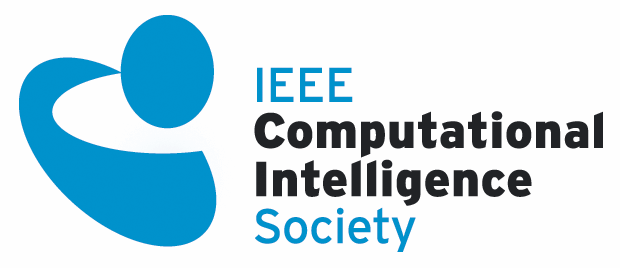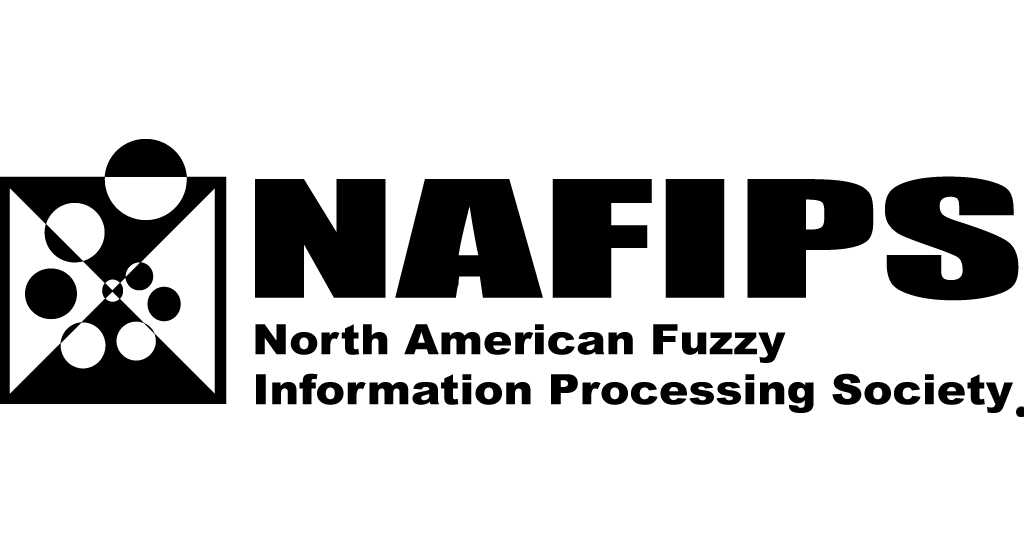Call for Organized Session Proposals
Interested organizers should prepare a proposal which includes:
- Session title.
- Organizer(s) (name, affiliation and E-mail address).
- List of at least three (3) papers (tentative titles and their authors).
- Presentation mode: oral or poster.
Please send it to scisisis2016+OS@gmail.com.
Approved Organized Sessions
| OS-01 |
Human Symbiotic Systems Yoichiro Maeda (Institute of Technologists, Japan) Tomohiro Yoshikawa (Nagoya University, Japan) Tsuyoshi Nakamura (Nagoya Institute of Technology, Japan) Masayoshi Kanoh (Chukyo University, Japan) |
| OS-02 |
Marketing Analysis Kazuhiro Takeyasu (Tokoha University, Japan) The session mainly includes the following themes. - Forecasting by using neural networks - Optimization in allocating goods utilizing genetic algorithms - Questionnaire investigations and their analyses |
| OS-03 |
New Generation Computing Paradigm Akihiro Fujiwara (Kyushu Institute of Technology, Japan) Kei Ohnishi (Kyushu Institute of Technology, Japan) The processing power of a conventional CPU is approaching the theoretical upper limit due to various physical constraints, and therefore, new generation computing paradigms are now actively discussed. This special session widely calls for papers related to new computing that does not stick to the conventional computing paradigms. |
| OS-04 |
Soft Computing in Urban and Transport Planning Takamasa Akiyama (Kansai University, Japan) |
| OS-05 |
Rough Sets, Granular Computing and Their Applications Yasuo Kudo (Muroran Institute of Technology, Japan) Masahiro Inuiguchi (Osaka University, Japan) Michinori Nakata (Josai International University, Japan) Recently, rough sets and granular computing are recognized as the new paradigm of computing, and attract the attention of researchers coping with data mining, knowledge discovery, pattern recognition, decision analysis, soft computing, Kansei engineering, etc. In this session, we focus on the recent progress of rough sets and granular computing, and exchange the new results and the ideas toward the future developments in this research area. Not only papers on rough sets, granular computing and their applications but also papers in the related area are welcomed. |
| OS-06 |
Intelligent Systems Based on Bio-signal Processing and Human Behavior Analysis Hideaki Touyama (Toyama Prefectural University, Japan) Hironobu Takano (Toyama Prefectural University, Japan) |
| OS-07 |
Decoding and Control of Biological System Hidekatsu Ito (Kwansei Gakuin University, Japan) Suguru N. Kudoh (Kwansei Gakuin University, Japan) |
| OS-08 |
Brain Computing and Embodies Knowledge Suguru N. Kudoh (Kwansei Gakuin University, Japan) Hidekatsu Ito (Kwansei Gakuin University, Japan) Isao Hayashi (Kansai University, Japan) |
| OS-09 |
Interval/Fuzzy Models for Multiple Criteria Decision Making Masahiro Inuiguchi (Osaka University, Japan) Tomoe Entani (University of Hyogo, Japan) |
| OS-10 |
Clustering Yuchi Kanzawa (Shibaura Institute of Technology, Japan) Crisp and fuzzy clustering are the most important tools in the field of data mining and machine learning, and many algorithms thus have been proposed so far. In terms of theory, new methodologies including noise rejection, possibilistic approach, co-clustering, asymmetric proximity measure, and cluster validity recently attract researchers' attention. In addition, clustering has been developed into various applications including classifier, collaborative filtering and so on. In this special session, leading-edge works of crisp/fuzzy clustering with the new methodologies will be described and discussed. |
| OS-11 |
Human Activity Estimation by Particle Filters Norikazu Ikoma (Nippon Institute of Technology, Japan) Capturing human activities such as sports players' motion as well as the ball motion within a play, pedestrians in a street, human detailed motions in a specific task and so forth, are crucial information to be passed forward to the subsequence information processing steps in high and abstract levels. In order to capture human activities, as one of the promising optimal filtering technique, so called particle filters are highly efficient and sufficiently flexible for applying to various scenes. This organized session calls for papers/presentations related to human activity estimation with the aid of optimal filtering technique including particle filters in various fields of applications. Researches with future possibilities for applying the optimal filtering techniques are also welcomed. |
| OS-12 |
Soft Computing Techniques for Computer Vision Motonori Doi (Osaka Electro-Communication University, Japan) Yoshimichi Ito (Osaka Electro-Communication University, Japan) Toshihiko Watanabe (Osaka Electro-Communication University, Japan) |
| OS-13 |
Advanced Biomedical Engineering Kouki Nagamune (University of Fukui, Japan) Syoji Kobashi (University of Hyogo, Japan) |
| OS-14 |
Fuzzy Intelligent Systems Chin-Wang Tao (National Ilan University, Taiwan) Shun-Feng Su (National Taiwan University, Taiwan) |
| OS-15 |
Soft Intelligent SoC Yukinobu Hoshino (Kochi University of Technology, Japan) This OS's topics are fuzzy theory and machine learning systems for application to the development of soft intelligent systems on chip (SoC). SoC is integrated circuit (IC) technology for integrating all the components of a computer or other electronic system on an IC chip. Soft computing, which studies empirical knowledge processing (like that in human beings) from the point of view of fuzzy theory, is used in the design of many types of industrial equipment. This OS discuss conventional theory and system design to the development of SoC. Application to more complicated systems is anticipated. |
| OS-16 |
Practical Applications of Intelligent Systems Keon Myung Lee (Chungbuk National University, Korea) |
| OS-17 |
Intelligent Sensors and Its Application Youngchul Bae (Chonnam National University, Korea) |
| OS-18 |
Intelligent Robotics and Vehicle System Young-Jae Ryoo (Mokpo National University, Korea) |
| OS-19 |
(Canceled) |
| OS-20 |
Intelligent Systems and Its Applications Byung-Jae Choi (Daegu University, Korea) |
| OS-21 |
e-Navigation and Its applications Jung Sik Jeong (Mokpo National Maritime University, Korea) Recently, e-navigation has received much interests in international maritime society. It requires innovation of conventional ship navigation by intelligence of navigation system with improvement on mariners’ situation awareness. The e-navigation is expected to contribute not only reduction of ship accidents, but also efficiency of sea transportation. The topics include integrity issues on maritime information for safe navigation, navigational risk assessment, marine data mining. We welcome all of you, who are interested in advanced ship navigation systems and maritime information mining. |
| OS-22 |
Social Implementation of Practical and Intelligent Systems Daisuke Kitakoshi (National Institute of Technology, Tokyo College, Japan) The topics of this session include a variety of practical systems aiming to solve real-world problems through communication with possible users and/or specialists in the problems. The session covers the following research fields: social implementation, intelligent robot (agent) systems, human-robot (agent) interaction. Papers on feasibility studies in the above and related areas are also welcomed. |
| OS-23 |
Multimedia Revolution Tetsuya Kojima (National Institute of Technology, Tokyo College, Japan) This session focuses on brand-new insights to multimedia technologies. We will discuss the novel schemes to develop the value of multimedia contents, create new usage of the contents, and measure the media value based upon communication technologies, signal processing, information hiding, big data analysis, information retrieval, machine learning, cryptography and information security, and so on. |
| OS-24 |
Robotics for Socio Synthesis Yasunori Takemura (Nishinippon Institute of Technology, Japan) Kazuo Ishii (Kyushu Institute of Technology, Japan) |
| OS-25 |
Soft Computing to Real World Application Sungshin Kim (Pusan National University, Korea) Euntai Kim (Yonsei University, Korea) |
| OS-26 |
IoT Security and Its Application Jung-Sook Kim (Kimpo University, Korea) |
| OS-27 |
Interactive Systems Jun-ichi Imai (Chiba Institute of Technology, Japan) Makoto Fukumoto (Fukuoka Institute of Technology, Japan) Recently we often interact with computer systems to receive desired services. In this session, we will discuss the theory, methodologies, design and applications of the interaction between humans and such computer systems. We widely call for papers related to the novel interactive systems. |
| OS-28 |
Theories and Applications of Evolutionary Algorithms Shinya Watanabe (Muroran Institute of Technology, Japan) Yoshiko Hanada (Kansai University, Japan) Naoki Mori (Osaka Prefecture University, Japan) This special session widely calls for papers related to evolutionary algorithms (EA) or evolutionary computations (EC). Topics of interest include but are not limited to:
|
| OS-29 |
Application to Managerial Decision Making Sangheon Han (Nagoya University of Commerce & Business, Japan) Managerial decision-making is a complex process that results in the selection of a course of action among several alternative scenarios. This session is intended to be a discussion about "applications of managerial decision making" with researchers with wide range field. |
| OS-30 |
Intelligent Smart City Young Im Cho (Gachon University, Korea) The session includes presentations on core algorithms and implemented systems to be an intelligent smart city platform, as well as discussion about the components and issues in intelligent smart city. |
| OS-31 |
Novel Media in Ubiquitous Virtual Reality Choonsung Shin (Korea Electronics Technologies, Korea) |
| OS-32 |
Action & Behavior Analysis for Surveillance & Other Applications Md. Atiqur Rahman Ahad (University of Dhaka, Bangladesh) Action, activity & behavior analysis, understanding, recognition, etc. are very important for numerous applications, especially for video surveillance. This special issue would like to delve into the progresses of these topics in the field of computer vision, HCI and related arenas. All accepted papers in this session will be invited for a Special Issue in the International Journal of Computer Vision & Signal Processing. For any query or before submitting papers, please contact to atiqahad@du.ac.bd |
| OS-33 |
Fuzzy Inference Systems Hirosato Seki (Osaka University, Japan) Tomoharu Nakashima (Osaka Prefecrute University, Japan) |
| OS-34 |
Cognitive Robotics Honghai Liu (University of Portsmouth, UK) Chu Kiong Loo (University of Malaya, Malaysia) Naoyuki Kubota (Tokyo Metropolitan University, Japan) |
| OS-35 |
(Canceled) |
| OS-36 |
Synthesis of Computational Intelligence Technologies and Methodological Design Sung-Kwun Oh (The University of Suwon, Korea) Kisung Seo (Seokyeong University, Korea) |





